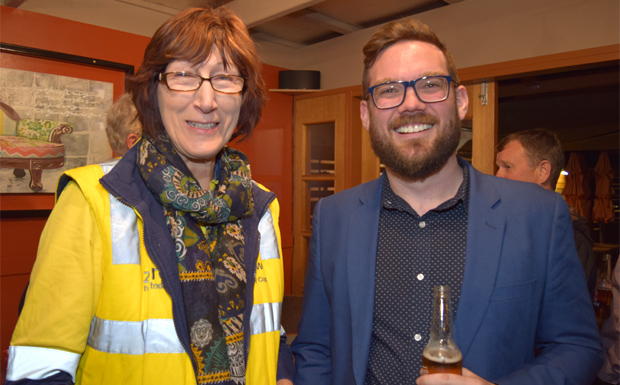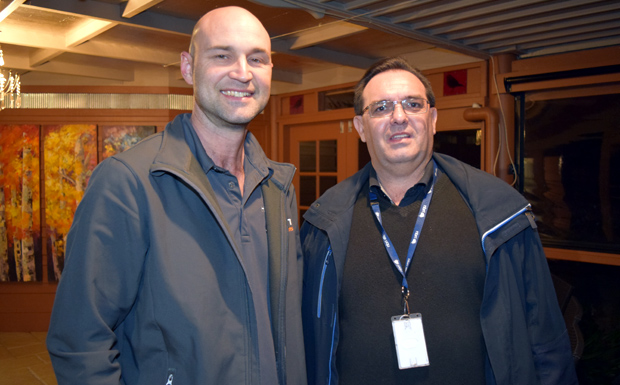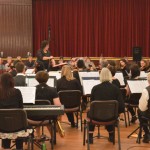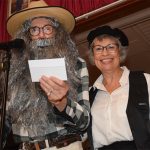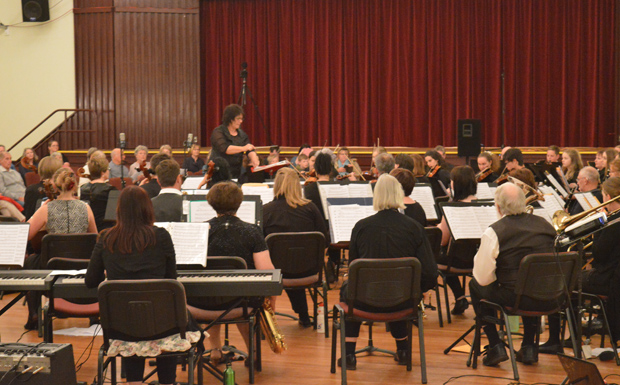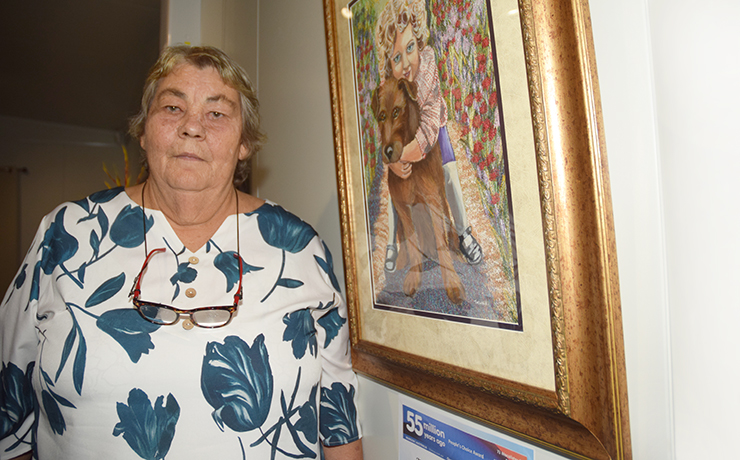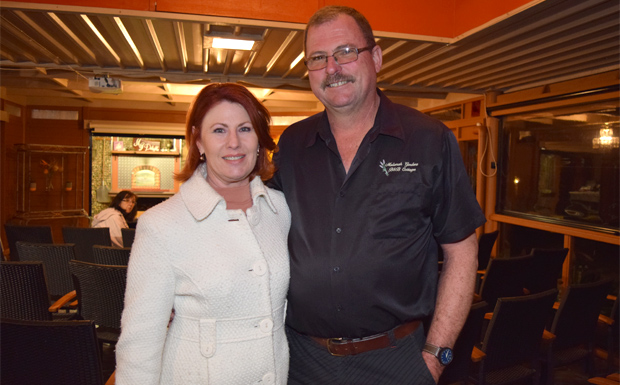
August 7, 2019
The first thing businesses who want to migrate to the NBN should do is to assess their telecommunications use and take an educated guess about what they would like to do in the future.
Doing this will help ensure not only a smooth transition to the NBN, but can also save money.
NBNCo’s Southern Queensland manager Damon Cavalchini passed on this advice at Tuesday night’s Kingaroy Chamber Of Commerce (KCCI) meet’n’greet, which was held at Mulanah Gardens at Benair.
Damon said some businesses who audit their telecommunications have discovered they’ve been paying for unused phone and fax lines and unwanted online services … sometimes for years.
He said the NBN rollout was accelerating as its end came in sight.
Businesses which were the most prepared tended to have the easiest time making the transition but because technology was advancing rapidly, it could be difficult to forecast exactly what telecom services a business might need in the future.
But, he said, the NBN was scalable and businesses which found they were underpowered could take out a different package that would service their needs without much difficulty.
For example, business might find it had a use for streaming video.
Most basic NBN packages offered variable speeds that can fluctuate over a range. This doesn’t pose a problem for many video applications, but more intensive applications can make streaming video jerky and unreliable.
The solution? Upgrade to a different package that offers constant speeds.
* * *
Contractors who would like to work on the Kingaroy Hospital redevelopment should contact the project’s builder Broad Construction Services as soon as possible.
Tim Turner, from the Darling Downs Hospital and Health Service (DDHHS), told the meeting he had been appointed as DDHHS’s Project Manager for the redevelopment.
However, the task of hiring tradespeople and selecting suppliers was up to the project builder and any sub-contractors they engaged.
Tim said DDHHS wanted to see as much of the project’s estimated $73.9 million budget spent in the South Burnett as possible.
To do this, DDHHS gave a favourable weighting to tenders that used local suppliers and workers.
But DDHHS did not directly employ any workers or engage any suppliers itself.
Furthermore, DDHHS’ definition of “local” extended to its entire coverage area, so suppliers and workers from places such as Toowoomba or Chinchilla get almost as favourable a weighting as those in Nanango, Kingaroy or Murgon.
Tim said this was better than the State or Federal Governments who tended to regard “local” as anything made or supplied in Australia.
However, suppliers and contractors from the South Burnett were preferred.
Tim said DDHHS’ aim was to see an 80 per cent local participation rate, and it also wanted to see a 5 per cent Indigenous participation rate.
However, it was up to the initiative of local workers and suppliers to put themselves forward.
* * *
Mulanah Gardens owners Lindsay and Rhonda Kath hosted the meet’n’greet in their meeting room which has undergone several extensions and improvements since it was first built.
They told the meeting they started out as farmers and expanded into what they now do almost by accident after a suggestion from their long-time friend Carolyn Stone, from Passchendaele Farm.
Carolyn suggested 19 years ago that they put some short-stay rental cottages on their farm to take advantage of its sweeping views over the local landscape.
The couple had mulled over this for a few years, and one day decided to do it.
The cottages were an immediate hit, so over the years the couple ploughed back their profits into more additions and extensions while they pursued their “off-farm” jobs in hairdressing and groundskeeping.
The result of all their work is a farmstay and popular weekend retreat for couples and visitors; a meeting place for corporations that can accommodate up to 50 people for functions, seminars and workshops; and an outdoor area that can cater for weddings with up to 150 guests.
Rhonda said she and Lindsay had accomplished all of it in their spare time in between work and raising a family, but they were pleased it had received such a good reaction from the public.
One of their most recent improvements was moving a portable pizza oven indoors and bricking it into a wall.
This allowed them to offer pizza nights where guests could choose their toppings and bite into the finished product just a few minutes later.
The complex also employs two baristas, three juniors and a cleaner, and is open to the public on Sundays from 9:00am for breakfasts, lunches and morning and afternoon teas.
Rhonda said the venue wasn’t licensed because of the paperwork entailed in getting a liquor licence, but guests were always welcome to BYO.
* * *
Kylie Kefford, from Xfactor Aesthetics, told the meet’n’greet she has been developing a health and wellness clinic at Mulanah Gardens for the past 18 months.
Kylie said she had learned a spinal alignment technique, known as PIDDDs, while overseas.
Her clinic is presently the only one in the South Burnett offering the service.
Kylie said her business also offers facials, blading and cosmetic tattooing.
Her clinic is open six days per week from 9:00am to 5:00pm and every second Sunday.
Kylie can be contacted through her Facebook page
* * *
Tuesday night’s meeting was the latest of the KCCI’s six-weekly Meet’n’Greets for 2019.
The date and venue for the next one has yet to be decided but will be announced on the KCCI’s website in due course.
Meet’n’greets are open to all South Burnett business people – whether they are KCCI members or not – and are held at a different local business each time.
A $10 meeting fee applies to cover the cost of drinks and nibbles.
Business people who would like more information about the KCCI can visit the KCCI website or email KCCI secretary Paula Greenwood
